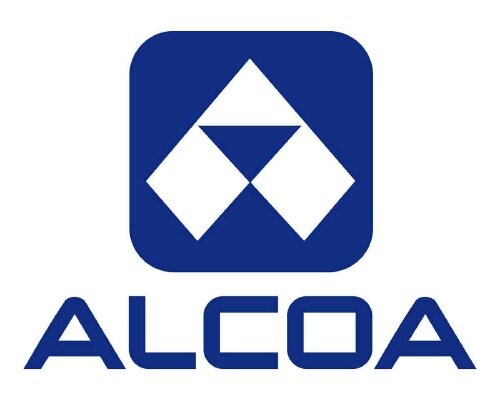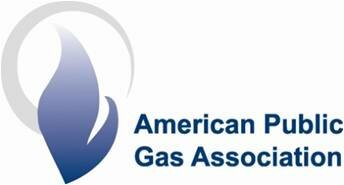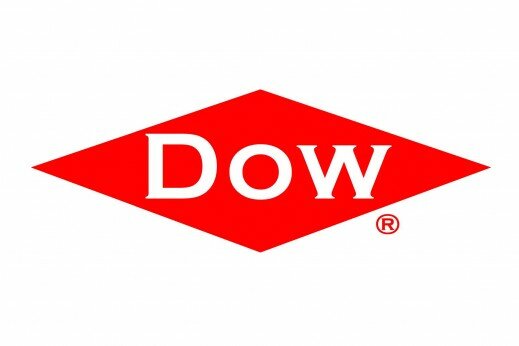Understanding Business Gas Prices per kWh: The Benefits of Longer Contracts

In 2023, business gas prices took a significant dip, making it a prime time to explore the deals available for your enterprise. The price you'll pay is largely determined by your business's gas consumption, with rates charged per kWh of gas that flows through your commercial property's meter.
Whether you're running a micro business consuming around 5,000 kWh annually, or an industrial-sized operation guzzling a hefty 500,000 kWh, the fluctuating rates can impact your bottom line. It's worth noting that business gas prices per kWh are generally cheaper as businesses often commit to longer contracts than average households. In 2022, business gas supplies were 15% cheaper than those for households. So, get savvy about your consumption and stay ahead of the game.
Understanding Business Gas Prices per kWh
The world of business gas prices may seem complex, yet a basic overview will help you to cut through the complexity. Dealing with rates charged per kWh, contract details, the premise's location, and wholesale prices are all important considerations. These factors converge to impact the cost of your gas bill significantly.
Take the instance of annual business gas bills in January 2024: multiple underlying expenses combine to form the final charge. Consequently, gaining a more in-depth comprehension of business gas rates enables you to find scopes to reduce costs effectively.
To get a hold of your business gas bills, it's recommended to:
-
Submit your best estimate of annual gas consumption while acquiring quotes. Tailored numbers optimise the validity of quotes.
-
Invest adequate time in reviewing quotes, ensuring you understand the disparities between suppliers prior to making any decision.
Another critical aspect to remember is that business gas rates are not protected by any price cap similar to the household energy market. Thus, if your business pays a standard variable tariff, the gas rates could be twice as costly per kWh compared to the market price. Being vigilant and informed about these rates will help you to make a decision that benefits your business financially.
More often than not, business gas rates encompass the charges companies need to pay for the supplier to provide a gas supply via the mains network.
Moreover, an interesting classification exists: if your operation employs less than 10 employees with an annual turnover or balance sheet no more than 2 million, you qualify as a micro business.
Taken together, the exact science behind business gas prices per kWh remains an interactive amalgamation of numerous factors. Being mindful and well-informed about these will inevitably aid in securing a contract that aligns best with your business's specific needs.
Factors Affecting Business Gas Prices
Several elements affect your business's gas prices. It's essential to understand these factors, so you'll be better equipped to manage your gas bills. Here, we discuss three crucial considerations that determine your business gas rates:
-
Gas Importing: Once upon a time, all gas consumed in the UK was produced domestically. However, due to depleting resources, we've had to import gas to meet our needs. The cost of importing gas, especially from Europe, significantly influences the price your business pays.
-
Gas Storage: Sadly, the UK's capacity for gas storage is meagre. A large gas storage site's closure in 2017 meant that now, the UK can only house a four-day worth of gas reserve. With such a limited storage capacity, gas prices have become more volatile, impacting your business gas costs significantly.
-
Supply and Demand: Like any commodity, gas prices are drastically affected by supply and demand. In periods of high demand, such as a chilly winter, prices soar.
Understanding these dynamics can help you navigate the business gas market more effectively. However, if you're on a variable rate contract, variability is part and parcel of your experience. On some days, you might pay substantially higher rates.
But fear not! There's a silver lining. If your business is engaged in a fixed-rate business gas contract, your supplier can't increase their gas price per unit (kWh). Remember, a few exceptions might apply to these rules regarding fixed-rate business gas contracts.
But remember, the best business gas prices also depend on your annual gas consumption and the size and location of your business. Factors such as the length of the contract and unit prices also affect the rates. So, it's prudent to compare gas prices from varied suppliers before settling for one. Always bear in mind these factors as you journey towards securing an energy deal that suits your needs.
How Business Gas Consumption Impacts Pricing
When considering business gas prices, the level of your gas consumption is key. This isn't just about the overall volume you use, but also the regularity and predictability of your demand. Suppliers need to forecast their purchasing on the wholesale gas market and if you're frequently adjusting your consumption levels, it can potentially impact the prices they can offer you.
Do you know how much gas your business uses on an annual basis? Your annual gas consumption doesn't just affect your overall bill - it affects your unit price too. Businesses with higher gas consumption often benefit from better unit prices. This is a common pricing strategy among suppliers, as servicing larger accounts often costs them less overall.
Do you know the type of gas meter your business uses? Your meter type can impact your business gas quotes as well. Depending on its type, your gas meter measures your usage in either cubic feet or cubic meters. This usage is then converted to kilowatt-hours (kWh) in your business gas bills.
It's essential to bear in mind these influencing factors when comparing business gas prices, amongst others:
-
Wholesale gas prices
-
The location of your business
-
The size of your premises
-
The sector your business operates in.
Remember, the best unit price isn't always about raw energy cost-per-unit. It’s also about how well the offer fits your business structure and operating model. For example, if you're a seasonal business, a no-standing charge tariff is often a wise choice. This tariff eliminates the fixed daily fee, ensuring you pay only for the gas your business uses.
By understanding these nuances, you can better navigate the market and secure the right energy deal to suit your specific needs. It's just a matter of identifying your key factors, comparing today’s live rates, and deciding on the tariff that best suits your business gas requirements.
The Benefits of Longer Contracts for Businesses
You might have heard that longer business gas contracts can be quite beneficial. So, you're probably wondering, what's the deal exactly?
To start with, long-term contracts provide a cushion against volatile energy prices. Prices fluctuate in response to several market factors such as gas importing and storage, supply and demand, business gas consumption and more.
In the short-term, these fluctuations may not significantly affect your business. However, they can become substantial over the course of several years. By securing a long-term contract, you effectively lock in a set price for the entire duration, protecting your business from potential hikes.
Furthermore, longer-term contracts can offer better unit prices, especially for businesses with higher gas consumption. As the gas consumption level goes up, you'll likely notice that unit prices become cheaper. This is a clear advantage for businesses with high energy needs.
Now let's move on to the predictability that longer contracts offer. By knowing exactly what your gas costs will be for the length of your contract, you can budget more accurately. There's variety in the contract options available too, which means you can find one to suit not just your budget, but the size and sector of your business as well.
For example, if you're a micro business consuming 5000 to 15000 kWh of gas per year, your annual cost could be around £1,013. On the other hand, a small business with an annual consumption of 15,000 to 30,000 kWh could spend roughly £2,046 per year.
|
Business Size |
Annual Usage (kWh) |
Cost per Year (£) |
|---|---|---|
|
Micro Business |
5000 to 15000 |
1013 |
|
Small Business |
15000 to 30000 |
2046 |
|
Medium Business |
30000 to 65000 |
4231 |
|
Large Business |
More than 65000 |
5663 |
Considering these factors can clear up any confusion and help you choose the right gas plan for your business.
Tips for Managing and Reducing Business Gas Consumption
Managing and reducing your company's gas consumption is beneficial for cutting down costs and minimising your footprint on the environment. But how can you get started?
Monitor Your Consumption
One of the foundation steps you can take is to keep track of your gas usage. Your business gas plan should provide you with an Expected Annual Consumption (EAC) estimate. By frequently comparing your actual consumption against this estimate, you can identify any sudden spikes or unusual usage patterns. Remember that your Meter Point Reference Number (MPRN) and the Meter Serial Number are your unique identifiers for the supply point and meter respectively. Using these in coordination with your EAC can support you in this process.
No-Standing Charge Tariff
Next, consider shifting to a no-standing charge tariff if your business is seasonal or operates only a few days in a week. With this tariff, your daily fee becomes zero, allowing you to only pay for the gas your business consumes. This eliminates the fixed daily charge that covers the cost of delivering and maintaining your gas supply. However, be mindful that this option may cause unit prices to be higher.
Consider Energy Efficiency
Lastly, focus on energy efficiency. Consider investing in energy-efficient appliances, or explore practices like turning off appliances that aren't in use and maintaining your heating and cooling systems regularly. These practices can drastically lower your gas usage and consequently, bring down your expenses.
By managing and reducing your gas consumption, you're not just saving on costs - you're contributing to a more sustainable business operation. So, take time to review your business gas usage regularly and implement changes as needed.
Key Takeaways
-
Business gas prices are determined by several factors, including consumption levels, contract terms, location, and wholesale prices. To minimise costs, businesses should understand these dynamics and be proactive in reviewing quotes.
-
Business gas rates are not subject to a price cap like household energy prices, which can mean higher costs for businesses on a standard variable tariff. Vigilance in monitoring these rates can lead to better financial decisions.
-
Businesses classified as "micro businesses" may be eligible for certain specifications in their energy contracts.
-
Several external factors affect gas prices, such as the cost of importing gas, limited storage capacity in the UK, and fluctuations in supply and demand. Awareness of these factors can lead to more informed decisions about energy contracts.
-
The type of gas meter a business uses, along with their annual gas consumption and various other factors, can directly impact the cost of business gas bills.
-
Fixed-rate business gas contracts can protect businesses from market volatility, while longer contracts might offer better unit prices.
-
Regular monitoring and management of gas consumption can lead to cost savings. Businesses might consider a no-standing charge tariff if they operate infrequently, or invest in energy-efficient practices and appliances for long-term savings.
Conclusion
So you've seen how long-term contracts can be a game changer for your business gas prices. They're not just a safety net against fluctuating energy costs, but also a tool for better budgeting. With the right plan, you can secure favourable unit prices and enjoy significant savings. Remember, it's not just about choosing a plan but also managing your gas consumption effectively. Keep an eye on your usage and consider a no-standing charge tariff if you're a seasonal business. And don't forget, energy efficiency is key. It's not just good for your wallet, but also for the environment. So, take the reins on your business gas costs today and pave the way for a cost-effective, sustainable future.
|
|
|
|
|
|
|
|
|
|
|
|






